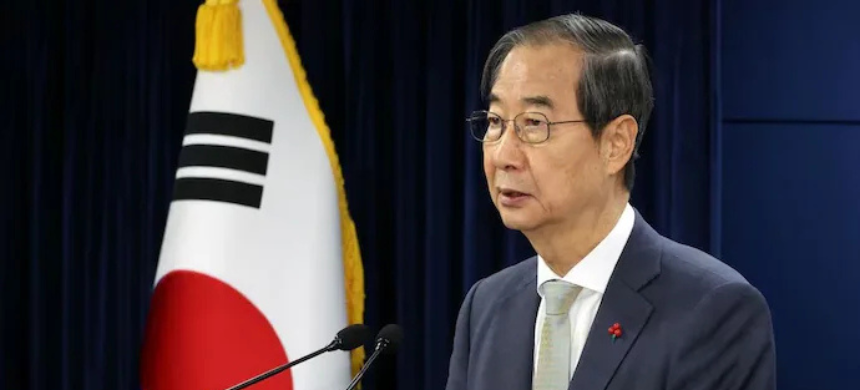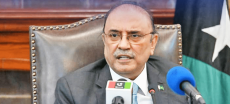South Korea’s parliament has impeached acting President Han Duck-soo, deepening the country’s political crisis less than two weeks after suspending President Yoon Suk Yeol for his controversial martial law declaration. This unprecedented move has left South Korea, often hailed as a democratic success story, in a state of political turmoil.
Han, who had been serving as acting president since Yoon’s impeachment on December 14, was removed following a parliamentary vote led by opposition parties. Finance Minister Choi Sang-mok has now assumed the role of acting president while the Constitutional Court reviews the impeachment cases against both Yoon and Han.
Choi convened the National Security Council and assured citizens that his government would work to stabilize the nation amid growing uncertainty. “The government must ensure that the people’s daily lives and the country’s security remain unaffected,” Choi stated.
The political upheaval follows President Yoon’s declaration of martial law on December 3, which was swiftly rescinded after strong opposition. The declaration and subsequent events have rattled Asia’s fourth-largest economy, with allies such as the United States and European nations expressing concern over the instability.
Read More: Korean YouTuber Daud Kim Builds Mosque in South Korea
Economic Impact
The crisis has negatively affected South Korea’s economy, with the Korean won falling 0.5% against the dollar, hitting a more than 15-year low at one point. Analysts have warned that continued political instability could trigger economic challenges reminiscent of the late 1990s financial crisis.
Choi himself had warned parliament against impeaching Han, citing the potential damage to the economy. However, his plea was ignored, as opposition lawmakers accused Han of failing to fulfill his duties, particularly in not appointing Constitutional Court justices.
Constitutional Court Battle
The impeachment motion against Han passed with 192 votes in favor, while members of the ruling People Power Party (PPP) boycotted the vote, calling it “tyranny.” Opposition leader Lee Jae-myung of the Democratic Party accused Han of “acting for insurrection,” further escalating tensions.
The Constitutional Court is expected to move quickly, with the next hearing scheduled for January 3. If Yoon is permanently removed, a new presidential election would be held within 60 days.
Martial Law Declaration Sparks Outrage
Yoon’s late-night declaration of martial law on December 3, aimed at addressing political deadlock and “anti-state forces,” shocked the nation. Lawmakers swiftly defied his order, voting against it within hours. The move sparked widespread public outrage, with polls showing overwhelming support for Yoon’s removal.
Gravest Crisis Since 1987
The current turmoil marks South Korea’s worst political crisis since the pro-democracy protests of 1987, which ended decades of military rule. Prosecutors have already indicted former Defense Minister Kim Yong-hyun on charges of insurrection, with more trials expected to follow.
The unfolding crisis has left South Korea in a precarious position, with both political and economic stability hanging in the balance.











